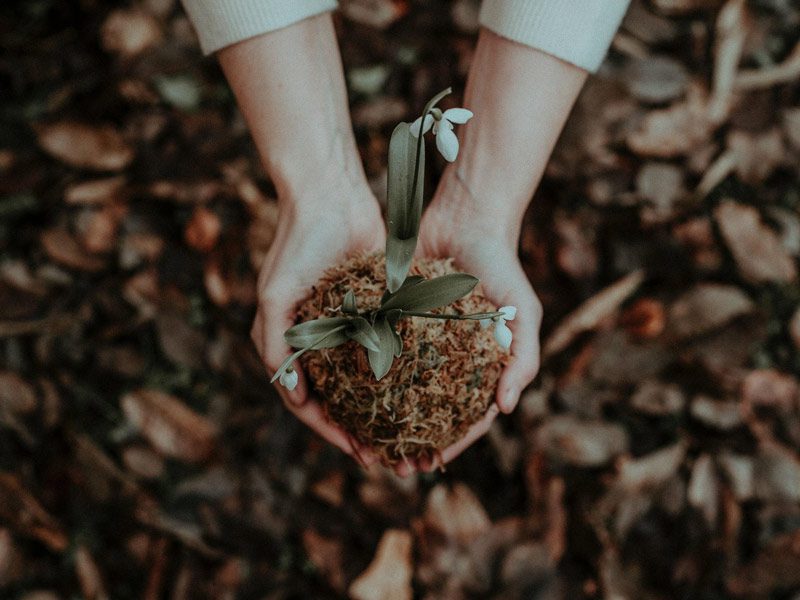Gardening is a popular hobby for many. But as well as keeping your outdoor space green, it can actually do a lot to support your mental health. It can keep you active, give you something to focus on, and take your mind away from the things that are worrying you. In this article, we take a look at the stress-relieving effects of gardening.
Staying active
Gardening is a great way to stay active — between digging up the soil, mowing the lawn, and pulling up weeds, you’ll find that you’re getting a pretty good workout. And exercising can do a lot to reduce your stress levels and improve your mental wellbeing.
When you exercise, it releases several hormones, including endorphins and serotonin, which can naturally ease pain and give you a positive feeling. Being active in the garden can also make you feel healthier in general as you stay in shape and feel more energetic. Plus, exercise can also tire you out and help you to sleep better, which can be difficult when you’re stressed.
Getting outside
Just getting outside when you’re gardening can do a lot to relieve stress. The sunlight triggers the body to produce vitamin D, which not only helps support your immune system and healthy bones but can also reduce depression, stress, and anxiety.
Gardening also allows you to connect with nature, making you feel more calm and able to take a step away from stressful things.
Encouraging mindfulness
Mindfulness is a type of meditation where you focus on the present moment and your surroundings, which can be really useful when dealing with stress. It allows you to take some control over your thoughts and clear your mind, and many people find gardening encourages mindfulness.
When you’re out in the garden, it can take up your entire focus and encourage you to be mindful. Instead of focusing on the worries and concerns that might be overwhelming you, you can focus on the task at hand, like weeding or planting seeds. It can help you feel more in control of your mind and give you some mental space to take a break from the things that are stressing you out.
A sense of achievement
Gardening can also give you a sense of achievement that makes you feel more positive. When you see the seeds or plants start to grow and flourish, you can see what you’ve accomplished.
There aren’t any real deadlines or pressure when you’re gardening. You can invest your time and energy into it and see a real difference as everything grows and flowers. This sense of achievement can do a lot to relieve stress and put things into a better perspective.
When you’re starting out just brush up on some beginner gardening tips and skills to set you on the right path like these ones from Gardeners’ World. Or for more specific things like problems with your soil, sites like John & Bob’s have plenty of tips about using organic fertilizer and how to ensure you grow healthy plants.
You can make mistakes
Even if not everything you plant grows well, or some of your flowers wilt, gardening is a continual learning process, and it’s okay to make mistakes. Try planting seeds and experimenting with which plants flourish in your garden and which ones don’t do so well.
Gardening is a stress-free activity, where it really doesn’t matter if things don’t go quite to plan. If you forget to water your beds during a heatwave or slugs eat your crop of lettuces, it’s really not the end of the world. It’s a good way of learning how to deal with setbacks and accepting things that are out of your control.
Connecting with others
Some people really enjoy gardening on their own, having a space for themselves. But if you want to, gardening is also a great way to connect with others. Whether it’s a quick chat with your neighbors over the garden fence, joining a community garden, or getting involved with an online gardening group, there are plenty of ways that you can use your gardening hobby to meet new people.
Talking to others and being part of a community can boost your mood and make you feel more positive about your garden and everything else. Plus, you’ll probably be able to pick up some good tips and advice or swap seedlings with other avid gardeners.
Gardening is a great way to get yourself outdoors and active, and it gives you a chance to step away from your stress and anxiety and focus on something completely different. If you’re feeling stressed and overwhelmed, embracing your gardening hobby could make a big difference.
About the Author: Laura May is Digital Editor at Just Another Magazine. We write about beauty, fashion, lifestyle, relationships, travel, trends, and anything else that matters to you. Name throwing you off? Don’t take it too seriously — we intend to stand out from the crowd.
July is BIPOC Mental Health Month
In 2008 the United States government designated July as Bebe Moore Campbell National Minority Mental Health Awareness Month “to enhance public awareness of mental illness …. among minorities.”
Bebe Moore Campbell was an American author and mental health advocate who wrote works of fiction, nonfiction, and children’s literature about the harmful effects of racism and the mental health impacts on those affected.
Each July, www.rtor.org and its sponsor Laurel House, Inc. honor the legacy of Bebe Moore Campbell. We believe in using language that puts people first and emphasizes their individuality and unique contributions rather than their health or demographic status. Just as we do not refer to people living with schizophrenia as “schizophrenics,” we avoid terms such as “minority” and “marginalized” when referring to BIPOC (Black, Indigenous, and People of Color) and BIPOC Mental Health Month.
Please join us in recognizing the unique struggles BIPOC face and bringing awareness to the need for adequate, accessible, culturally relevant mental health treatment, care, and services.
Our recent blog post, 8 Accessible Mental Health Resources for Black, Indigenous, and People of Color (BIPOC), contains several links to online resources promoting the emotional wellbeing and access to mental health care for these communities.
www.rtor.org and Laurel House are committed to the advancement of racial equity and social justice and to making mental health services available to all.
Image: Pexels
The opinions and views expressed in any guest blog post do not necessarily reflect those of www.rtor.org or its sponsor, Laurel House, Inc. The author and www.rtor.org have no affiliations with any products or services mentioned in the article or linked to therein. Guest Authors may have affiliations to products mentioned or linked to in their author bios.
Recommended for You
- How the Anxiety Habit Keeps You Stuck (And How to Break Free) - October 6, 2025
- The Flip Method: How I Broke 15 Years of Health Anxiety in 4 Seconds - September 29, 2025
- When “I’m Fine” Is a Warning Sign: Reading Between the Lines When Someone Is Struggling - September 25, 2025





